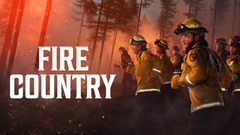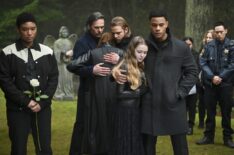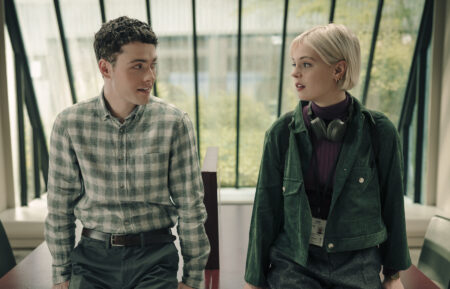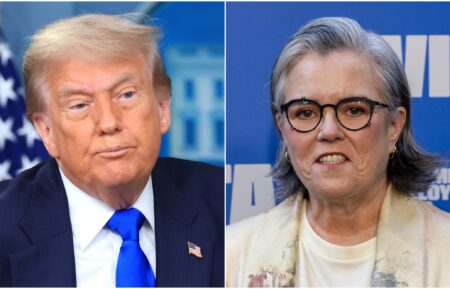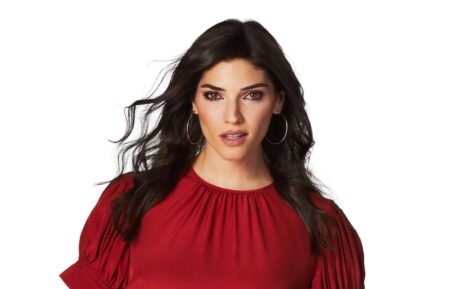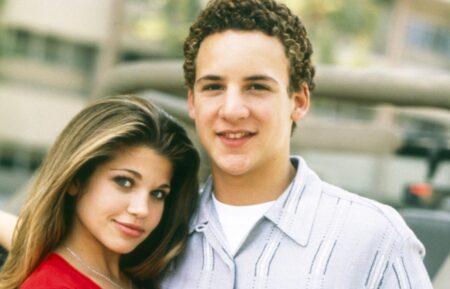‘Fire Country’ Reveals If Bode Is Genevieve’s Father — Max Thieriot Teases What’s Next
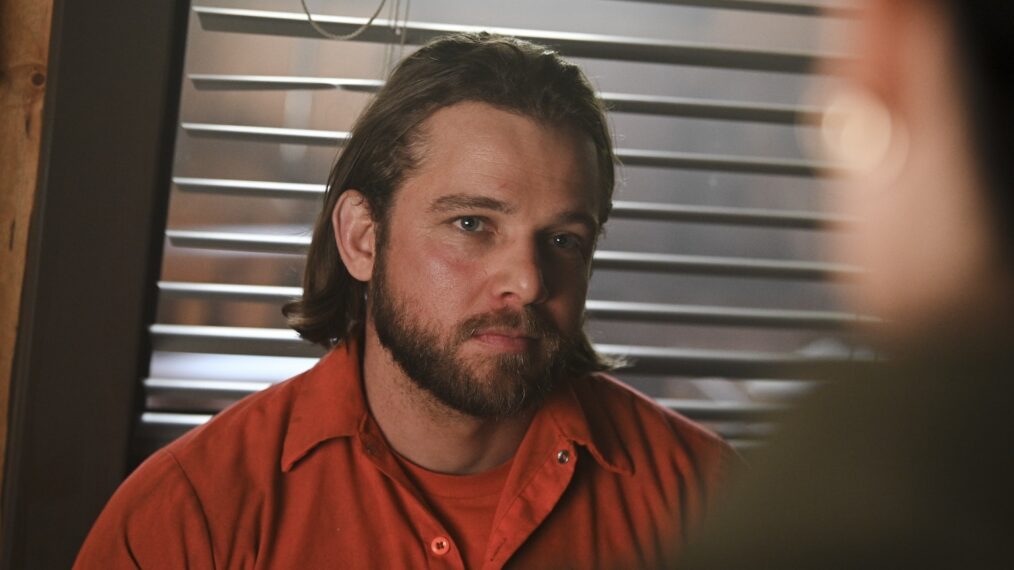
Spoiler Alert
[Warning: The below contains MAJOR spoilers for Fire Country Season 2 Episode 6 “Alert the Sheriff.”]
“I didn’t sleep much, but it was a lot of fun,” series star, creator, and executive producer Max Thieriot says of directing the latest episode of Fire Country.
That’s because a lot happens. It introduces Morena Baccarin as Mickey, Sharon’s (Diane Farr) estranged sister. (Mickey also arrested Thieriot’s Bode in the past.) An inmate, after realizing he’ll probably die of cancer before he earns his freedom, escapes Three Rock; Mickey, with Bode’s help, tracks him and the corrupt sheriff down. And the paternity results come in, revealing that Bode is, in fact, not Genevieve’s (Alix West Lefler) dad.
Below, Thieriot talks about that paternity reveal, what it means for Bode, introducing Mickey, and more. Plus, let us know your thoughts on the potential new sheriff-centric series we could see here.
Bode isn’t Genevieve’s father. When was that decided that would be the case? End of last season? This season?
Max Thieriot: No, it was this season, and we went back and forth on it for a bit. I think we had a minute where some of us were split and felt like he should be and some of us felt like he shouldn’t be, and so it became almost a real, “Alright, everybody in favor of this, raise your hand,” but I think that’s part of the fun of all of it, is giving everybody some say and really hearing everybody out in the process and the reasoning behind doing it or not doing it. So yeah, it was interesting because on one hand, it was easy because even at a certain point in the season, we still hadn’t fully decided. We thought we were going to go one way, then partway through the season we’re like, “Well, maybe he should be the dad.” And then for me as an actor though, it was fine because the reality is all the way up until this point, Bode is living his life like he is her father. And so even though we hadn’t fully decided that yet, it really didn’t matter for how I was playing everything. Yeah, it’s crazy. I guess that’s the crazy part about television.
I loved that last scene with Sharon and Vince coming to tell Bode because Leone family scenes are always the best on the show, but also that Vince sat there and let Bode and Sharon be the ones to talk. Talk about directing that and filming it as an actor.
It was a really fun scene to film, obviously. I mean, you love Leone family scenes, I love filming Leone family scenes. I love working with those actors, and even the really difficult scenes that we have—like the scene where we had the flashback of Riley dying—the really heavy emotional ones are fun to shoot because Diane and Billy are so great, they’re so talented, and I feel like the three of us just have such a tight bond that it ends up coming across onscreen.
We have some of these wide shots where it really feels like we isolate Bode and then even in these singles in the front where we’re disconnecting him from everybody. Once he gets this information, I think we felt like visually it was important to, even though he was in the room with these people, have him feel alone, have the audience sort of look at him and really feel this guy who feels like now that he’s found out that he doesn’t have a daughter, he looks entirely alone in the world, and that’s really emotionally where he’s at. But then in the end you see them, she reaches her hand and getting to feel the family come back together. And then obviously we come outside of the building. And I think the storytelling there—looking into this family coming together and trying to do anything they can to be a family, and also showing that they’re willing to do whatever they can for this girl…
It’s always a funny thing because most of the scenes that I shoot, there’s usually some visual piece to it that is emotionally connected to the scene in a way that sometimes the audience doesn’t ever even realize. And I probably get more heady about than they even know, but that’s part of me just nerding out over directing and shots and storytelling stuff. But yeah, it was fun. I think obviously even from the moment where Sharon walks in, he knows what’s about to happen without her even saying anything, and that’s just the bond and the connection that they have.
How hard will it be for Bode to stay on the path he’s been on, in large part because of Gen, now that he knows he’s not her father? He has been holding on to that.
Yeah, we’re going to see that really come into play for the rest of the season. He’s made a promise to Cara, and he is going to look after Gen. And obviously at that moment he believed he was also her father. But I think in Bode’s eyes, he still made a promise, and if there’s one thing we know about Bode, when he says he’s going to do something for somebody, he means it. But I think at the same time, he’s spinning a little bit internally and trying to grasp onto something to figure out what this means for him. He’s put so much of his energy and focus and his life in this that now, what does he do? And if he’s able to see this through for Gen, is that it or is there more? Is there more for him? And so I think he’s kind of spinning a little bit, and it’s not maybe in a terrible way, but inevitably we’ll get to see it come out in moments where it just boils over a little bit where he has to let something out.
At what point was it determined that Mickey would be Sharon’s estranged sister? From the beginning of conceiving this character?
I’m trying to think when we fully decided on that. There was always some relation to Sharon. So the weird thing, too, is—and it’s probably in part our own fault that we weren’t super clear on it—Mickey’s her sister, but only through marriage technically. I don’t know if that totally made sense, because we say, “Oh, her dad’s not my dad,” but her mom also isn’t her mom. Basically, their parents got married later on in life, and they lived together for a while. We knew that we wanted a connection between them and then a connection to Mickey’s possible ex-husband and really sort of feel the sense of this small town. I think we felt like we had played around with different family dynamics up until this point, so it was about coming up with something new and distinct. We also felt like to have a character who has some sort of relationship that’s a little bit deeper than just being friends with Sharon would allow the audience to attach to that character a little easier and really feel like she belonged in the world and belonged with this family and this community.
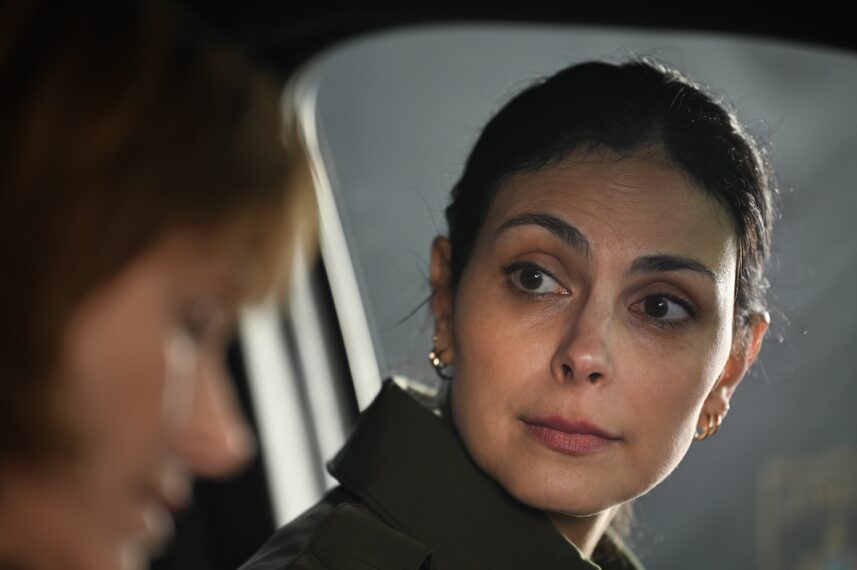
Sergei Bachlakov / CBS
It also allowed us to open up to Sharon’s background a little bit more, which we’d done with Vince [Billy Burke] and seeing his dad, but we felt like Sharon was a character that we didn’t know as much about, and so this was an opportunity to have the two of them. We were just really excited about the dynamic of watching these two really strong, powerful women in these scenes and seeing the sort of fast-talking fun that they can have, but then also sort of the sibling bickering in a weird way and disagreeing on things. I always imagine the two of them, their parents got married and Sharon is in her later teens and they’re fighting over bathroom time and who gets to use the hairdryer. And so I think just kind of creating that dynamic really seemed like something that was fun. We thought about trying to do something else at different times and we just kept going back to it and feeling like that was the strongest play.
Bode and Mickey’s relationship also was quite interesting because she does trust him to go after Rudy, and there doesn’t seem to be any hesitation on her part to uncuff him. Then she says that she’s going to give him credit in her report. So might that help Bode earn his freedom sooner?
I think the good conduct credit, for sure, is something that we should be considering that possibility. I think Bode helping to get Rudy and to solve the case certainly is a good thing for Three Rock.
This wasn’t structured to be a backdoor pilot, even though there’s the potential of this new series coming. So what did you want to do with the character of Mickey and that world to set up that potential?
I think our biggest goal on this episode was to introduce a character who felt like she was very much a part of this world already and that she lived in and felt authentic to Edgewater and this community and all these other characters, like she’s just one other piece of the bigger puzzle. But I think the big thing as well was because we were showing as a pretty large focus of the episode the sheriff’s office for the first time—we had seen different jobs in the show, usually branches of Cal Fire, maybe neighboring fire stations or volunteer fire departments—and we were really going to spend more time with Mickey in this episode and see this sheriff’s office, we felt like it was important to give that a little bit of a different feel while also keeping it in the same world.
So it’s a weird balance where you want it to be distinct and unique and stand out and have a little bit of a different look, but at the same time, you don’t want it to be such a contrast that it doesn’t feel like Fire Country. So that’s sort of the juggle and why we played around with coloring the episode a little differently, using some longer lenses in some of these scenes and compressing things a little bit, making them soft, but also still maintaining the general Fire Country feel. And that was just something that we talked about during prep and felt like, “Hey, because we’re showing the sheriff’s office, we want it to have its own sort of unique flavor to it, but still Fire Country, that’s really what it is, right?”
Fire Country, Fridays, 9/8, CBS
